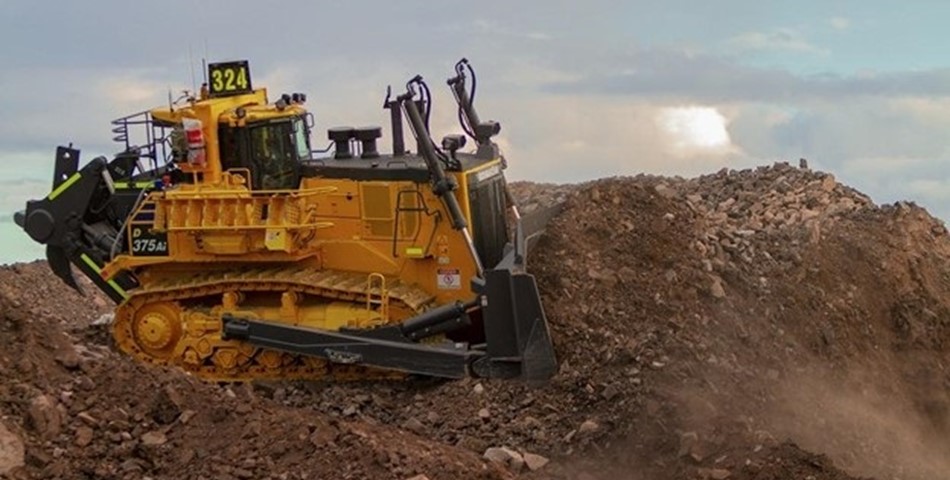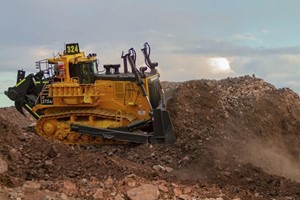Big tractors, backhoes, dump trucks, and bulldozers, these machines are getting smarter and more efficient, which can mean improving profits and free cash flow for the companies that make the equipment. That can capture the imaginations of investors.
For machinery customers, and everyone else, new equipment has benefits. It is better for the environment. It can produce lower carbon emissions. But that’s not the only pollution being reduced.
Earlier this week, agriculture and construction equipment maker CNH Industrial (ticker: CNHI) hosted an agriculture technology day in Arizona. The company showcased how data and technology can improve crop yields and farmer productivity. CNH also unveiled alternative drivetrains—equipment that runs on methane produced on the farm, or on batteries.
Much of the new farming technology, from CNH or from Deere (DE), is about saving on labor or using less via the precise application of fertilizers, pesticides, and other crop inputs. And the new drivetrain technology is better for the environment.
CNH’s methane-burning engines take gases produced by organic matter that would be released into the atmosphere and burn them as fuel. It might seem counterintuitive, but releasing the carbon dioxide generated by burning methane is far better than just letting the methane float away. Combustion actually lowers a farm’s carbon footprint.
Battery-powered machines can lower carbon footprints too, but that isn’t the main pollution heavy-machinery makers target with their electrification technologies. It also can reduce noise pollution.
Battery-powered equipment is quieter, and less noise can make heavy machinery more productive. It can be impossible for construction to happen, say, inside an office building during the workday. It’s too loud and distracting. With an “electric mini-excavator, you could [work], it wouldn’t have a problem at all,” CNH CEO Scott Wine told Barron’s.
That excavator is more expensive than a conventional one, but Wine added the premium is worth it for construction crews to be able to work around the clock.
CNH isn’t the only one using batteries. Caterpillar (CAT) showed off four battery-powered prototypes at the bauma 2022 construction machinery show in October. Deere , which generates about one-fourth of its sales from construction equipment, started testing an electric backhoe in 2021. The company said “customers have been reaping the benefits in noise reduction, elimination of the need for diesel, and the ability to meet their own sustainability goals.”
J.P. Morgan analyst Tami Zakaria wrote Thursday that operating profit margin on the new precision agriculture equipment can be 1.5 to 2 times higher than corporate average margins. That means faster earnings growth for companies such as CNH, Deere, and Caterpillar in years to come.
Investors seem to be buying into the idea that things are a little better than past economic cycles for the industry. The heavy-machinery stocks have all outperformed the market this year. CNH stock has fallen about 5% so far in 2022, while the S&P 500 and Dow Jones Industrial Average have declined about 18% and 9%, respectively.
Deere and Caterpillar shares have done even better, rising this year about 27% and 19%, respectively.
The stocks still trade at less than the S&P 500’s 17 times multiple of earnings. Caterpillar and Deere shares both trade for roughly 15 times estimated 2023 earnings. CNH stock trades for about 10 times.














